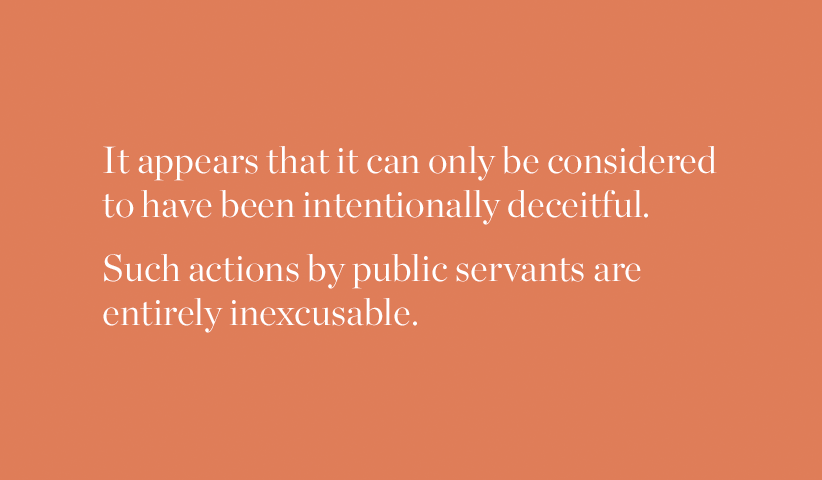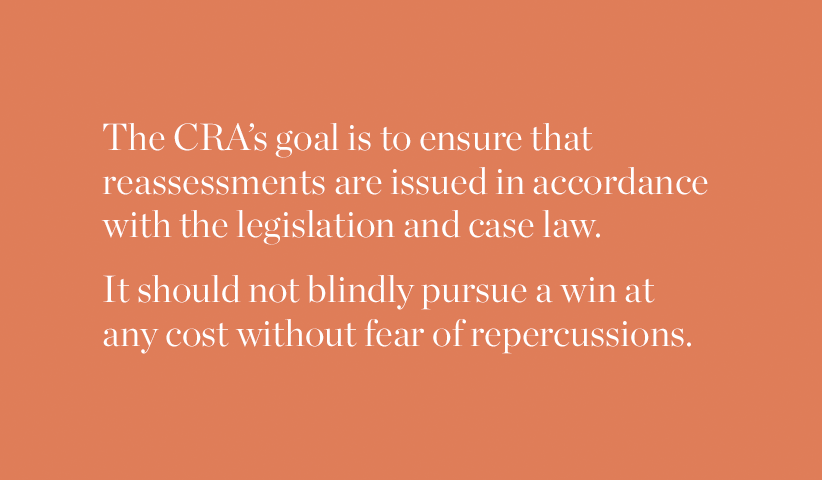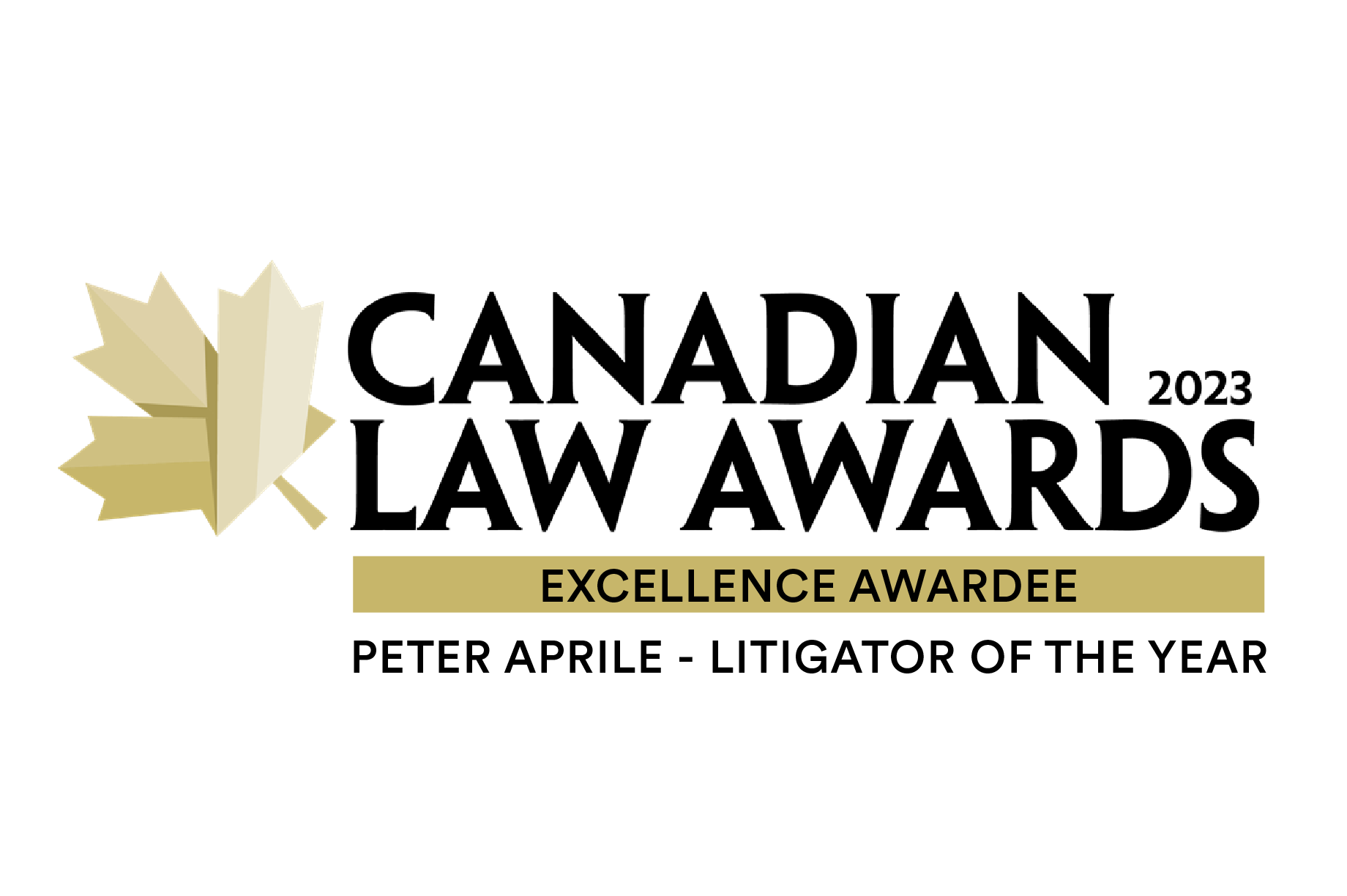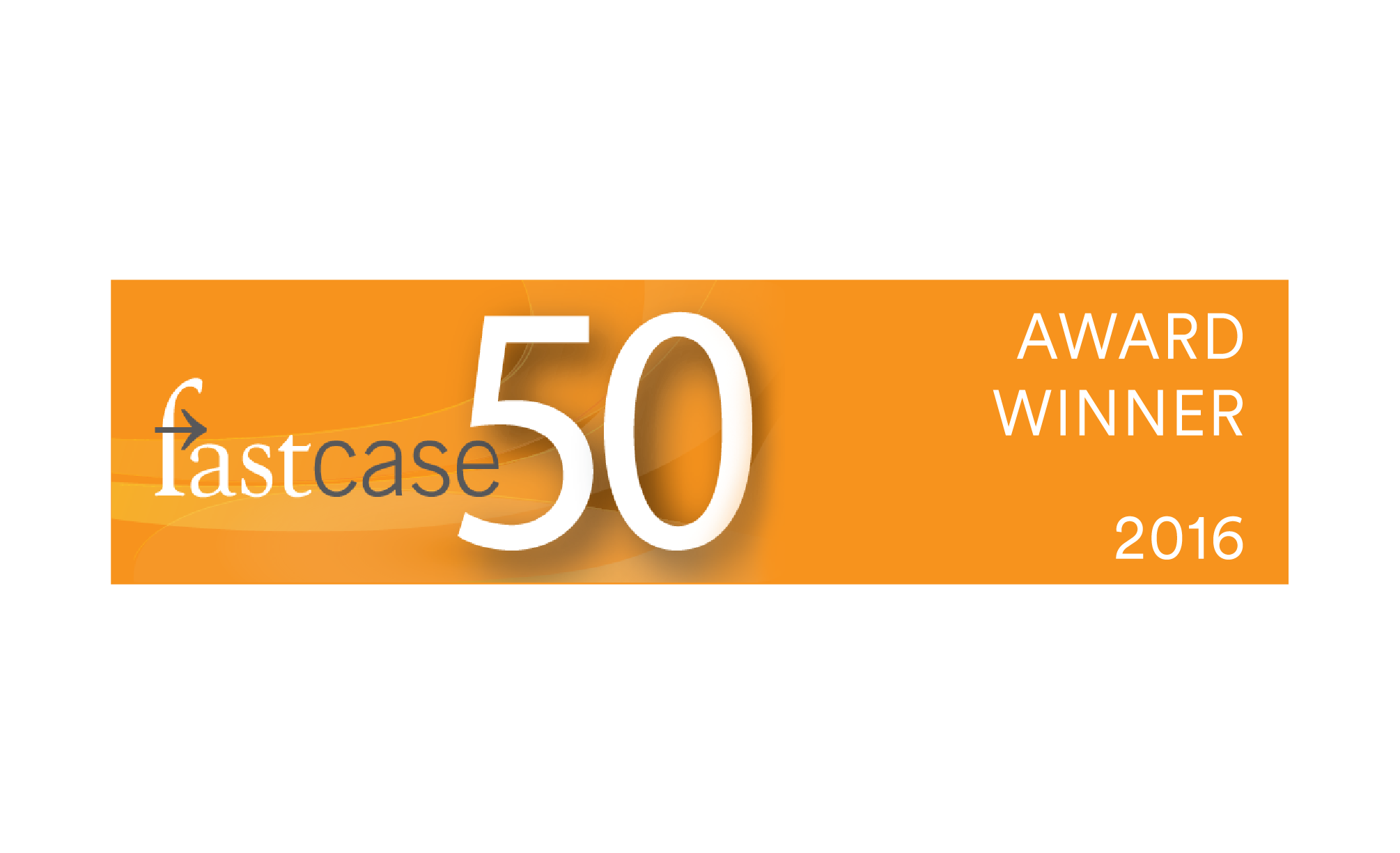
Advocate Daily initially originally published, "Tax court should go further when awarding costs”, in March 2014.
Although a recent Tax Court of Canada decision shows a continued trend towards higher costs awards, it also represents a missed opportunity to award full costs in a case where a Canada Revenue Agency (CRA) auditor was found to have been “intentionally deceitful,” says Toronto tax litigation lawyer Peter Aprile.
In Martin v. The Queen, the appellant, Eleanor Martin, was assessed under s. 160 of the Income Tax Act in respect of her late husband’s tax liability, specifically, the deductibility of an arm’s length salary paid to her by her husband.

However, Justice Patrick Boyle found that there was a difference between the CRA’s written communication to Martin and what the CRA confirms an auditor told her. “This is not a case of a CRA auditor writing something incorrect or stating something incorrectly. It appears that it can only be considered to have been intentionally deceitful. Such actions by public servants are entirely inexcusable. The Court is very surprised that the CRA would in these circumstances have pursued its section 160 case against Mrs. Martin with such vigour given that the deceit related precisely to the most significant issue in this case being the worth of Mrs. Martin’s services to her husband’s practice,” wrote Boyle.
As the Financial Post reports, the Tax Court of Canada recently awarded the plaintiff in this case over $11,000 – more than double the cost of her appeal. “Although I am happy that the Tax Court ruled in excess of the tariff and twice her actual costs of the appeal, I think that this could have been a great case for the Tax Court to have awarded a greater portion of the $66,000 in costs that the taxpayer incurred at the audit and objection stages. The subject reassessment was rooted in CRA deceit, and the government should have agreed to resolve the matter prior to the hearing of the appeal,” says Aprile, principal of Counter Tax Lawyers.
However, he adds, “the Tax Court justified its decision in not awarding higher costs that would have made the taxpayer financially whole, on the basis that it was not clear to Justice Boyle that the CRA’s misleading or deceptive communications warranted an award of solicitor/client costs. Justice Boyle’s statement was surprising based on his findings that the CRA’s conduct was intentionally deceitful, the appeal should have been resolved prior to the hearing of the appeal and the CRA’s conduct would “surely be considered reprehensible, scandalous and outrageous to the Canadian taxpayers CRA serves.”

Following this decision, one question that remains, says Aprile, is how to ensure that this type of situation doesn’t happen again. “The CRA’s goal is to ensure that reassessments are issued in accordance with the legislation and case law. It should not blindly pursue a win at any cost without fear of repercussions. This is particularly important – as Justice Boyle indicated his reasons for judgment – in tax litigation where the government is using its significant resources to pursue one of its citizens. It will be interesting to see whether the Minister of National Revenue or Taxpayers’ Ombudsman will take any action to review the CRA’s process in determining whether reassessments were properly raised, the lengths that the CRA will go to defend these reassessments and pursue one of its citizens, and whether the CRA auditor in this case will suffer any administrative punishment.
In the meantime, he says, “unfortunately, this case is another reminder that taxpayers are going to have to stand up and fight hard, even against reassessments that are wrong and based on improper CRA conduct, or else the improper reassessment will stand”.













.png?width=400&height=400&name=CT-How_Can_We_Help-22_july_NewGraphic_b(small).png)
.png?width=1386&height=1224&name=2025%20Legal500%20Elite%20Boutique%20Award%20(Badge).png)
.png?width=1386&height=1224&name=ITR%20Finalist%20Practice%20Leader%20of%20Year%20Peter%20Aprile%202024%20(Badge).png)

.png?width=1386&height=1224&name=2025%20Legal500%20Leading%20Firm%20Client%20Satisfaction%20Award%20(Badge).png)



.png?width=1386&height=1224&name=ITR%20Tax%20Innovator%20Finalist%202024%20Award%20(Badge).png)




